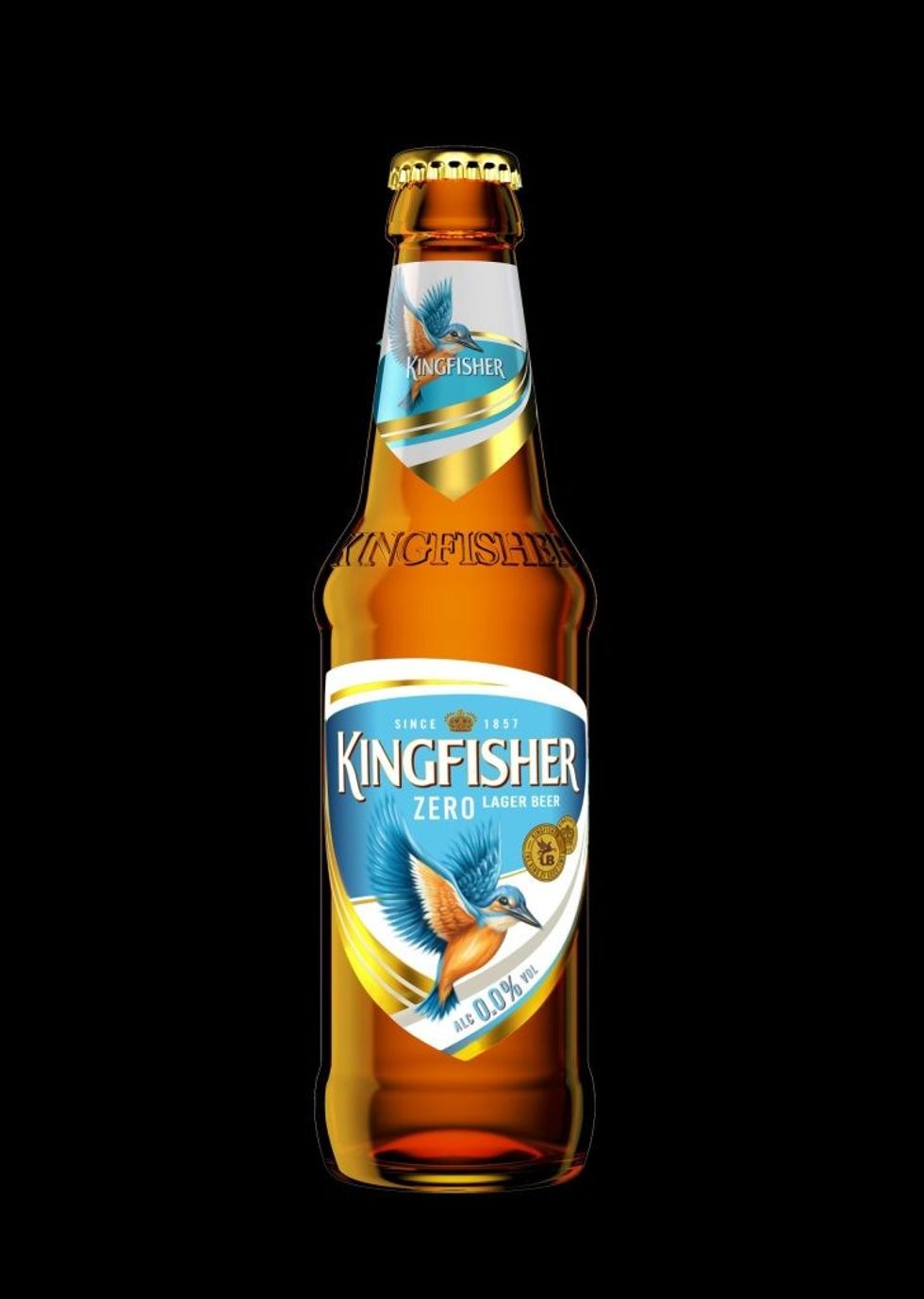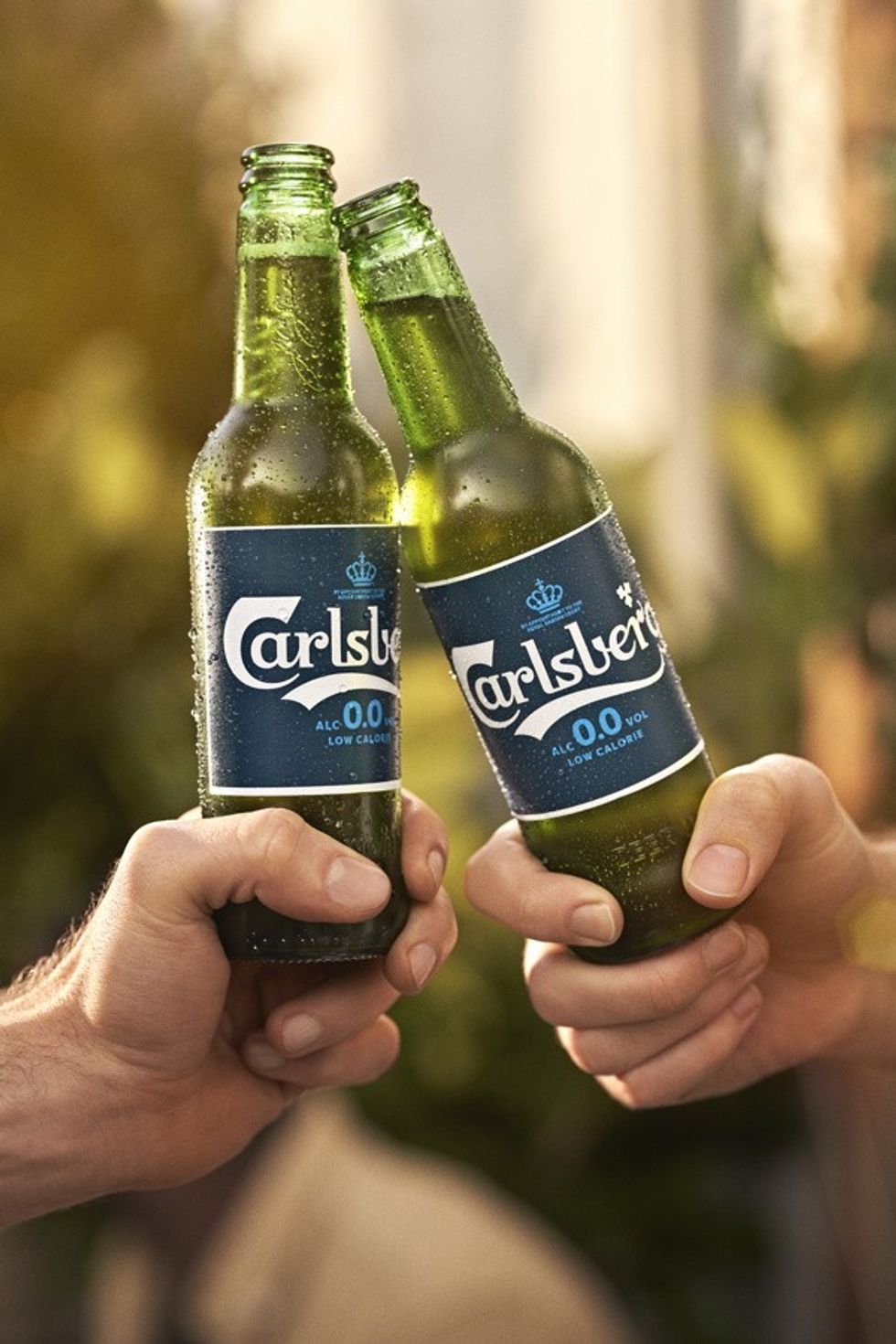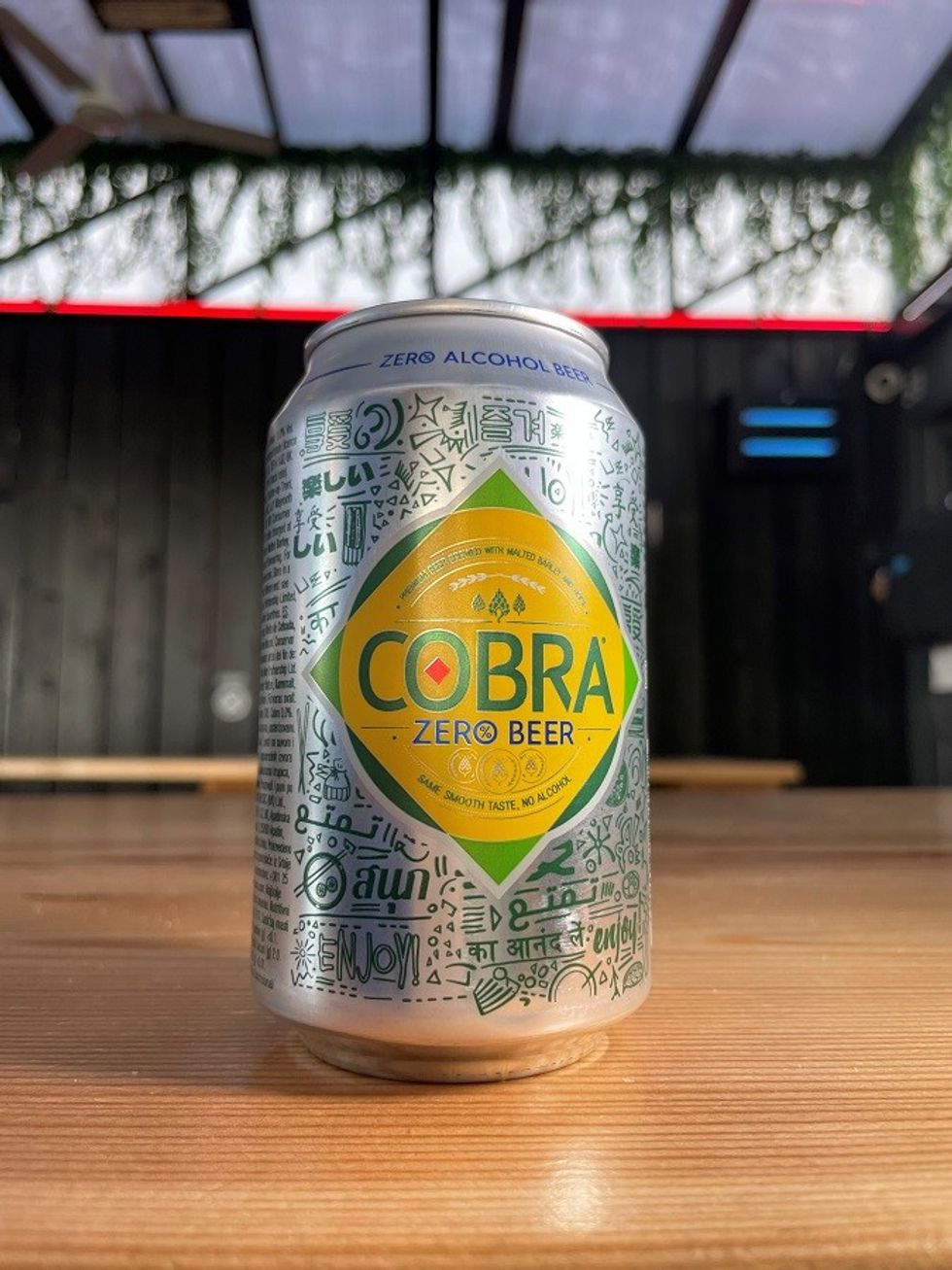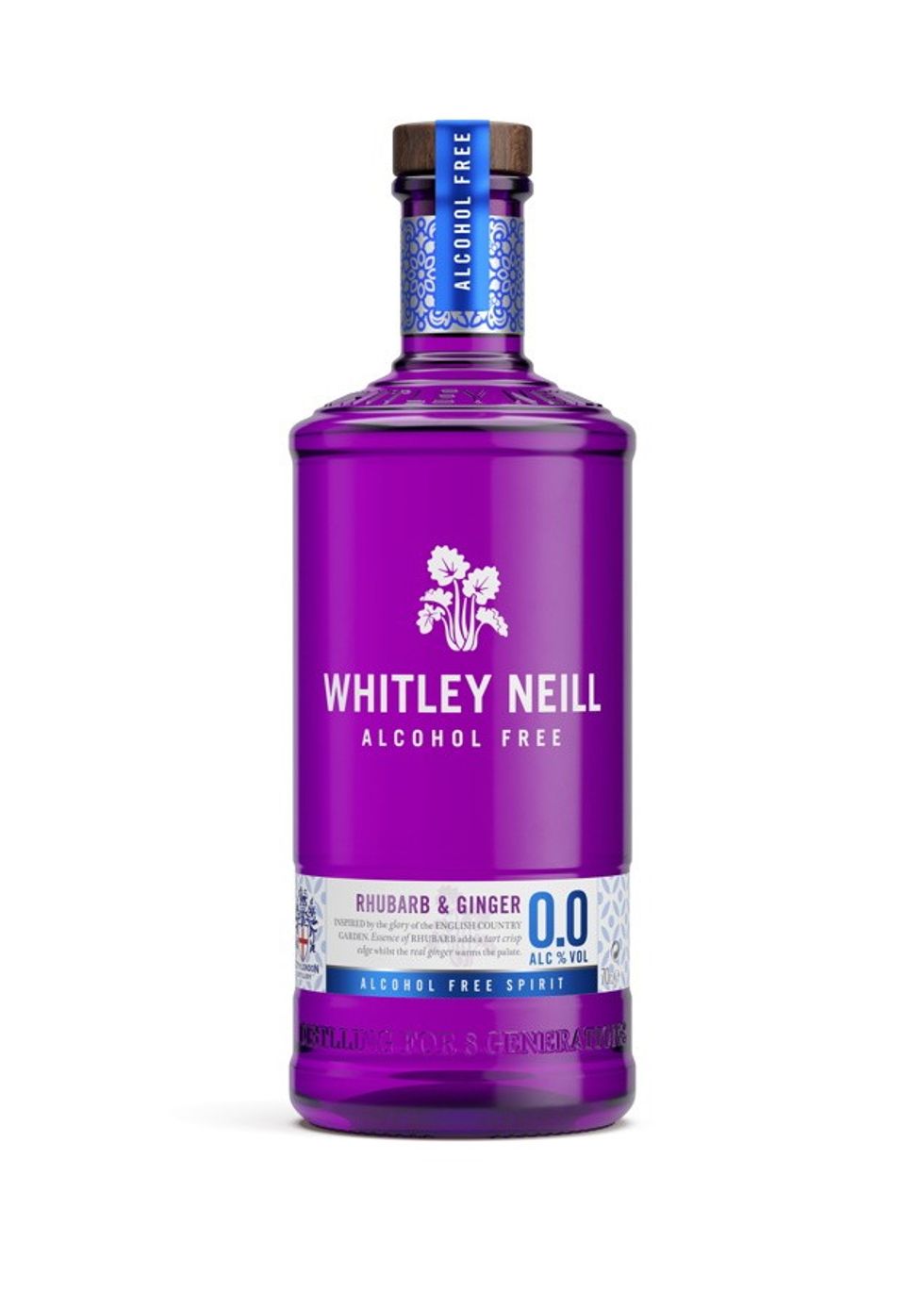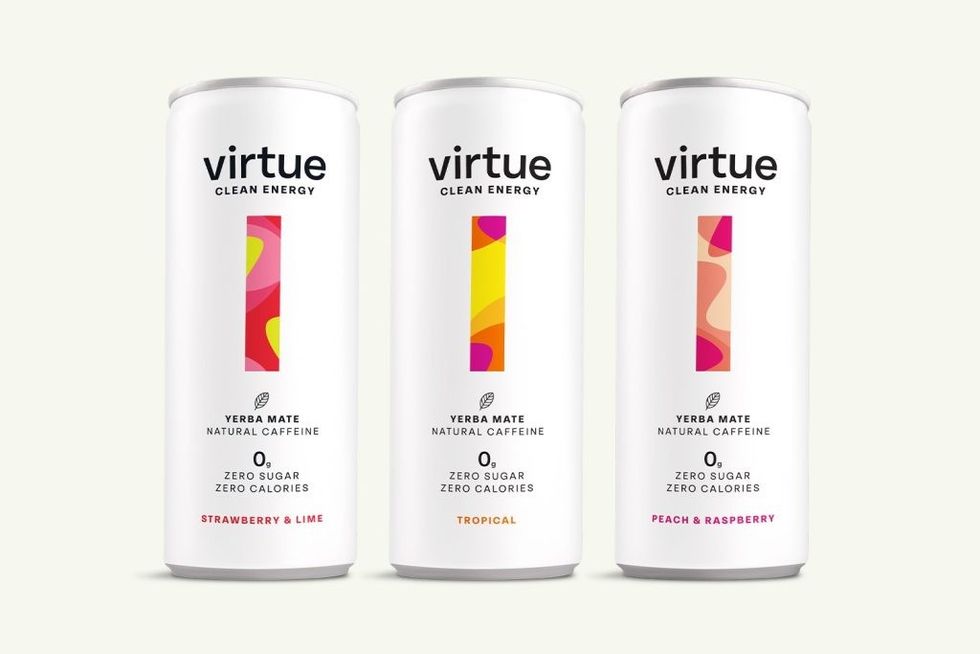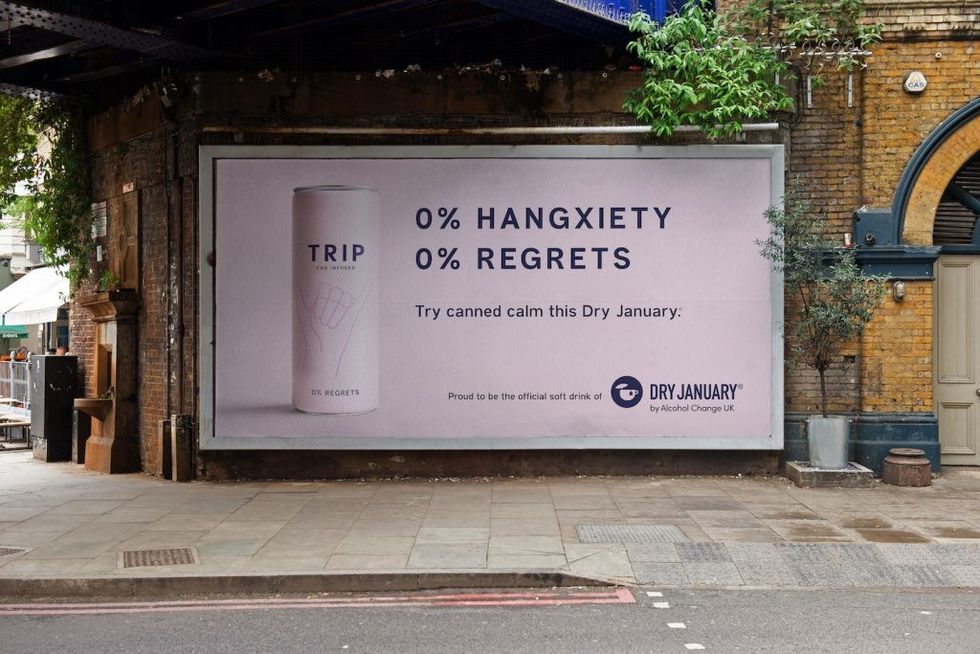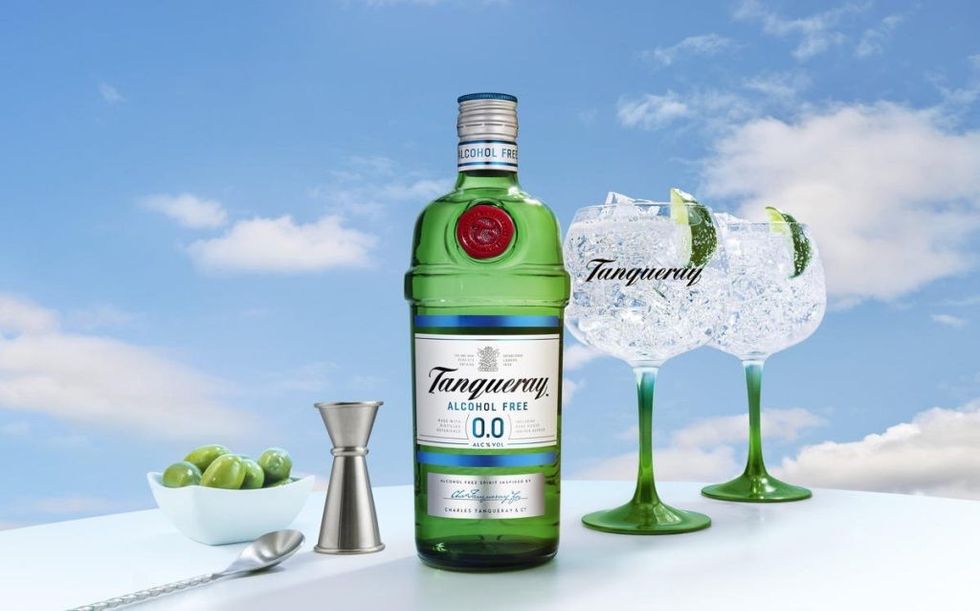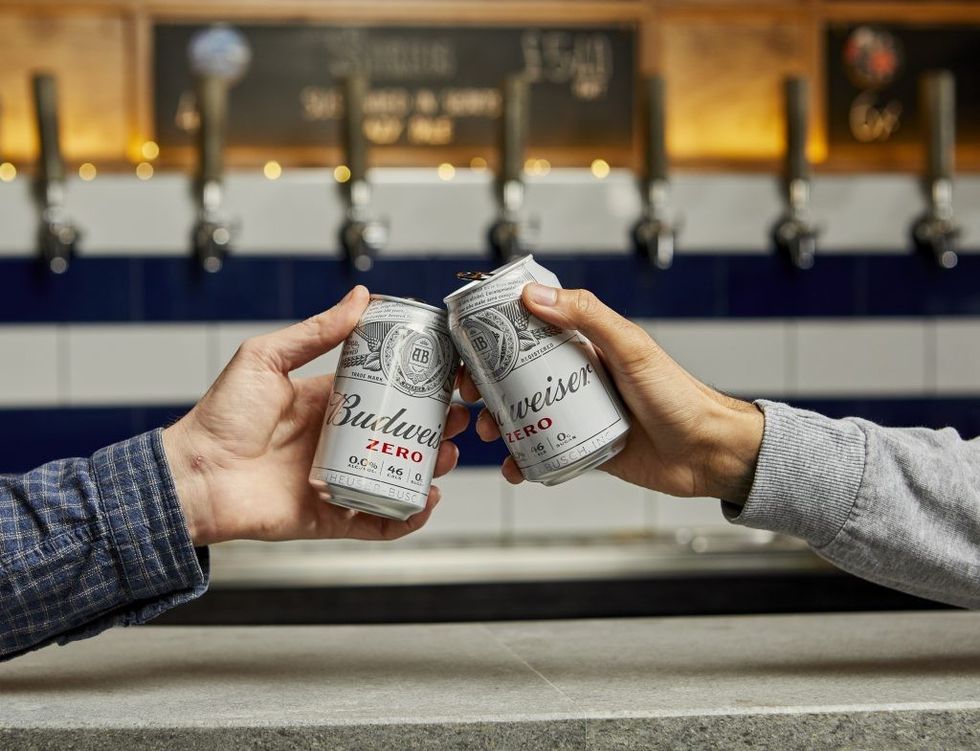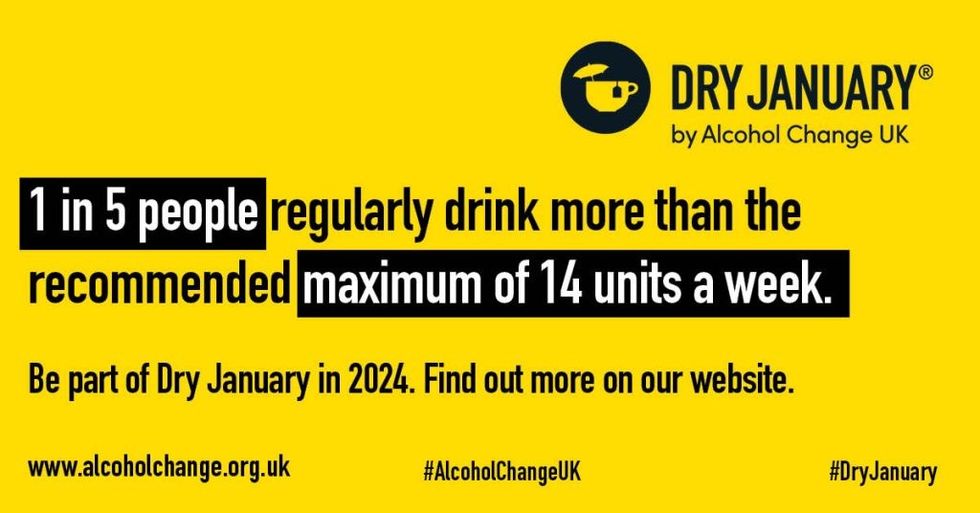Look inside
Dry January is not – looking out the window – a very poor weather prediction, but rather an increasingly popular new year health-kick that follows on superbly well from the nation’s marathon eating and drinking that reached a fire-cracking climax at midnight on New Year’s Eve.
The Season of Binge probably commenced with Halloween, continued during the Big-Night-In tournament of autumn and then sailed through the extended festive season of office parties and intensified liquid socialising, all leading up to the Christmas feasting and carousing Olympiad.
It would not be surprising, after all this fun and indulgence, to discover a few extra pounds had smuggled their way onto the hips. The Fitness Club industry depends upon glimpsing ourselves in the mirror as new people by the time January comes around – just not perhaps the people we would prefer to see looking back at us.
While flab might mostly be result of rich living and fine dining, Dry January is concerned less with weight and outward appearance, and more with giving your insides a chance to recover from over-indulgence. It is not unusual to feel a bit sluggish and green around the gills after the Christmas period, and the Dry January movement – Alcohol Concern (now Alcohol Change UK) launched its first annual campaign 12 years ago – takes advantage of the natural desire on the morning of January 1 to skip the pub at lunchtime, using the opportunity as a springboard to swerve the booze for as much of the month as you can, without having to admit any sort of dependency or attend AA meetings.
There is strength in numbers, and knowing that the whole country is pulling together (rather than pulling pints) can help you hold off and give your poor punished organs a chance to recover: uniquely, the liver can indeed rebuild itself to a pretty much pristine state if it has not been irreversibly nuked over the years.
What it means to be dry
So Dry January is a welcoming, “soft” challenge for giving up alcohol for the first month of the year, giving the body a chance to recover its temporarily lost athletic poise and bounce, helped by the fact that it is indeed cold and not dry outside, and we have no money left to go out anyway.
“To be absolutely clear," says Alcohol Change UK, “this challenge is not a detox or for those with dependency issues. Instead, it’s aimed at the huge numbers of people who are steadily drinking a bit too much, too often, without realising the effect it may be having on their health.” CEO Dr Richard Piper points out that Dry January is a successful UK export, a trademarked programme designed and run by Alcohol Change UK and franchised to France, US, Switzerland, Italy, Norway & Germany.
He also points out that alcohol duty rates are (almost unbelievably) the lowest now that they have been for most of the last 40 years, representing a potentially serious loss to retailers if customers decide en masse to boycott this important revenue category of the convenience channel.
Fortunately, the development and increasing uptake of low and no alcohol products offers drinkers and retailers the perfect means of staying both sober and profitable during these potentially dry January days.
The fact is that ever more people are joining in with Dry January, and that this is a part of a more general and prolonged experiment with sobriety – especially among the more digitally-focussed younger generations. Some booze substitution may be accounted for by fizzy drinks and chamomile tea sales. But for those who truly enjoy the taste of grape, grain and hop, alcoholic alternatives are extremely well catered for by the no-and-low offering now available.
The no and low category began with legendarily bad-tasting beers in the 1980s, but the sector has been utterly transformed since then. Today, the range of brands is almost inexhaustible, combining original zero brews and mainstream labels that have issued their own low or no versions of traditional alcoholic brews in both cans and bottles.
Kingfisher Drinks, for example, launched its zero version in November (wholesale RRP of £19.99 for a pack of 24 bottles), while a month earlier, Molson Coors’ Cobra Beer appeared in an alcohol-free guise. Carlsberg 0.0 also launched in 2023, joining the established roster that includes Heineken’s 0.0 alcohol-free offering, Peroni’s and of course the groundbreaking zero-alcohol stout, Guiness 0.0 and Asahi’s 2022 0.0 label, alongside others too numerous to mention. Pale Ale is well represented, including BrewDog’s zero alcohol version of its popular Punk IPA brew, Punk AF.
Other categories have joined the no and low revolution (probably the correct word), and we now see alcohol-free craft ciders – such as Maiden Mill’s two 0.5% ABV options, named Voyage and Flyer, with spirits increasingly represented: not just gin, which began with Seedlip and now includes Tanqueray, Gordon’s, Whitley Neill (whose zero range mirrors the flavours of its core range, with Rhubarb & Ginger, Raspberry, Blood Orange, as well as a Spiced Dry).
Now there are options in Rum, including the Dead Man’s Fingers brand and Captain Morgan’s Spiced Gold 0.0 – and with the zero-alcohol sector in a state of healthy growth and expansion, we can only expect more products to appear during 2024.
Wine, too, has climbed on to the wagon. Non-alcoholic wine such as the Schloer brand and the excellent Eisberg have been available for decades, but choice within traditional alcoholic brands is now widening, with examples like Black Tower well-embedded in the sector, and Accolade Wines’ zero alcohol ‘&Then’ label.
Energy drinks can of course replace some of the excitement and stimulation of alcoholic beverages, and now other alternatives such as Virtue Drinks natural caffeine drink, Superpower with Yerba Mate – a South American-origin herbal based beverage. Or there is a CBD option in Trip, “the official soft drink of Dry January”, a campaign spearheaded by mental health advocate Roman Kemp, and claimed to be the UK’s fastest growing soft drinks brand.
Lower and lower
Daisy Collingwood of The Portman Group reports that its sixth annual survey (in partnership with YouGov) shows that young people are the biggest consumers of low and no alcohol alternatives, with nearly half (44 per cent) of 18–24-year-olds considering themselves either an occasional or regular drinker of alcohol alternatives. This compares to just 31 per cent in the 2022 survey – an increase of 25 per cent in the space of a year.
“Trends also show that the younger generation are now the most sober age group overall, with 39 per cent of 18–24-year-olds not drinking alcohol at all,” she adds – and that group is no doubt the chamomile tea and soft drinks crowd.
The others are of more interest for Dry January in particular, since they are merely drinking less and not necessarily quitting. For them, zero beer might be just the job.
The Portman Group results show how these products have contributed to increasing moderation among UK drinkers, says Collingwood, "with a rise in respondents who have seen their alcohol consumption decrease as a result of low and no alcohol products (23 per cent compared to 21 per cent in 2022) and over a third of those surveyed now consider themselves an occasional or regular drinker of alcohol alternatives – a significant increase from 2022 (29 per cent).
Indeed, the no-and-low offer appears to be the perfect way to mix sobriety with socialising, and a good section to stock up on early in the year.
“Our research continues to tell a positive story of how low and no products have become an important and normal part of how the UK public moderate their drinking and tackle potential harm – with three quarters of UK drinkers having at least tried a low and no alcohol alternative, compared to a third of non-drinkers.
Matt Lambert, CEO of the Portman Group said: “It is welcome to see a further rise in the popularity of low and no alcohol alternatives as well as further evidence of how they are an important tool to help UK drinkers, particularly younger adults, to drink responsibly.”
Reasons to be cheerful
The benefits of giving up drink even temporarily can be felt with pleasing swiftness – many of them within a day or two, as described by the doctors at Healthline:
Losing weight – an alcohol no-brainer: and it’s not only the alcoholic calories that won’t be missed. alcohol is (also) a sugar rush that creates “false” hunger, so you eat more than you need, too. Stay sober to stay slimmer!
Deeply sleeping – while alcohol may render you unconscious, it destroys your rest, interrupting sleep cycles (even if you don’t wake up with a raging thirst and a pounding heart), sapping your energy and depressing your mood.
Increasing mental capacity – this could be a “no-brainer”, because as you lose the hangover head-fog, the world will be restored in its crystalline perfection, becoming easier to understand and navigate. You will be happier; research suggests that dementia might become less likely.
Repairing liver damage – positive changes can occur within weeks of going dry, enabling the liver to maximise its de-toxifying role without being “bed-blocked” by booze. It will be better able to deal with other sugars, fats and hormones to help keep you glossy and pert.
Fighting heart disease – too much alcohol leads to an excess of small particle cholesterols in the blood (free radicals) which can lead to crackly, hardened arteries and catastrophic cardio events. Lay off the liquor and keep those arteries sleek, silky and supple.
Reducing cancer risks – alcohol, like tobacco, is a proven carcinogen, particularly resulting in tumours of the head and neck, breast, liver and bowel. We all have to die of something, but let’s not hurry it up, eh?
Just dry it
The people at Ritual Zero Proof drinks have issued some top-grade advice and guidelines to help you through the first dry days:
Dry January Symptoms – It is worth noting that going completely sober after periods of excessive drinking can actually lead to some “Dry January Symptoms”. Some of these side effects of Dry January (or any dry month) can include shaky hands, anxiety, and light insomnia. Let’s clear something up really quickly; experiencing any of these symptoms does NOT mean that you have a drinking problem. The point of any dry month is to give your body a chance to detox and allow you to personally evaluate the role that alcohol plays in your life.
Dry January tips – these include taking a look at your calendar at the start of every week, and thinking about situations you might be in where you might be tempted to have a drink. For example, if you plan to meet some friends after work, consider choosing a location that has non-alcoholic drinks available, or otherwise plan out what you want to order from the menu in advance. Alternatively, consider inviting friends and family over for a game night inside!
Another Dry January tip for setting yourself up for success is to remove all alcohol from your house. Out of sight, out of mind. Much as dieticians might advise you to remove junk food from your house, if you remove the temptation from your sight, you are significantly less likely to consume alcohol. What if you have some nice bottles of bourbon or wine? Not to worry. Take a little time to package them delicately and store them away where it won’t be as easy to access them. Though it may sound unorthodox, storing nice bottles of alcohol away for after January will remove the temptation, while simultaneously giving you something to look forward to at the end of the month for all your hard work!
A few final tips : use the buddy system! If you have a gym buddy, friend, or partner who is also considering health goals going into the new year, encourage them to join you in a sober January. This will help you both stay accountable to each other, as well as your goals, and can make all the difference when motivation starts to fail halfway through the month.
Alcohol Change UK is encouraging people to download their free app, Try Dry (Try Dry: the app for Dry January and beyond | Alcohol Change UK), to take part in Dry January and double their chances of a successful alcohol-free month, as a study by the University of Sussex published in 2020 found that those who take part in Dry January via the app and/or free email coaching programme by the charity are twice as likely to have a completely alcohol-free month, compared to those who try to avoid alcohol in January on their own, and have significantly improved wellbeing and healthier drinking six months later.






